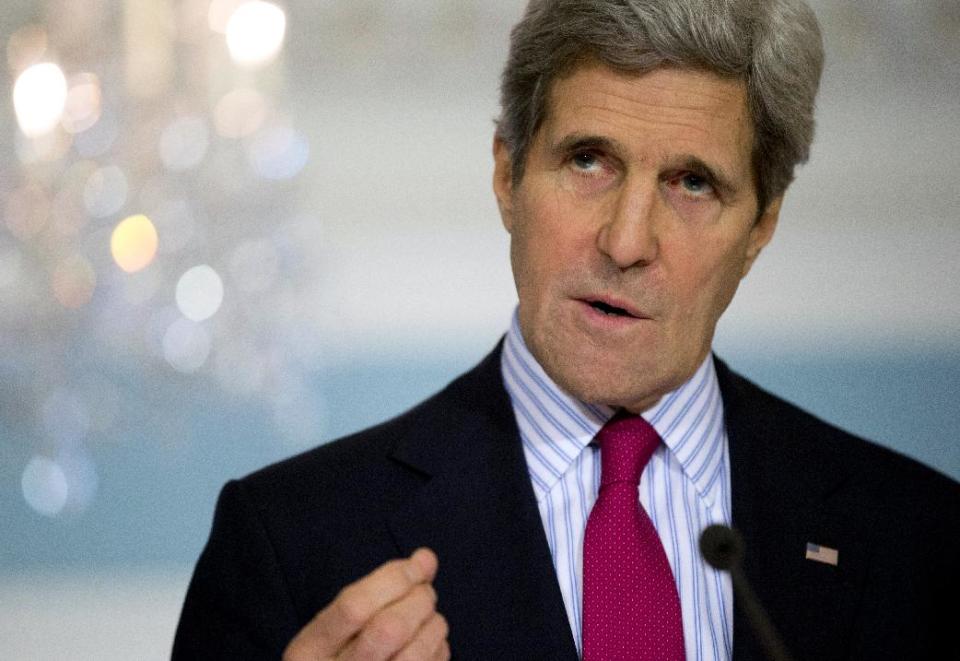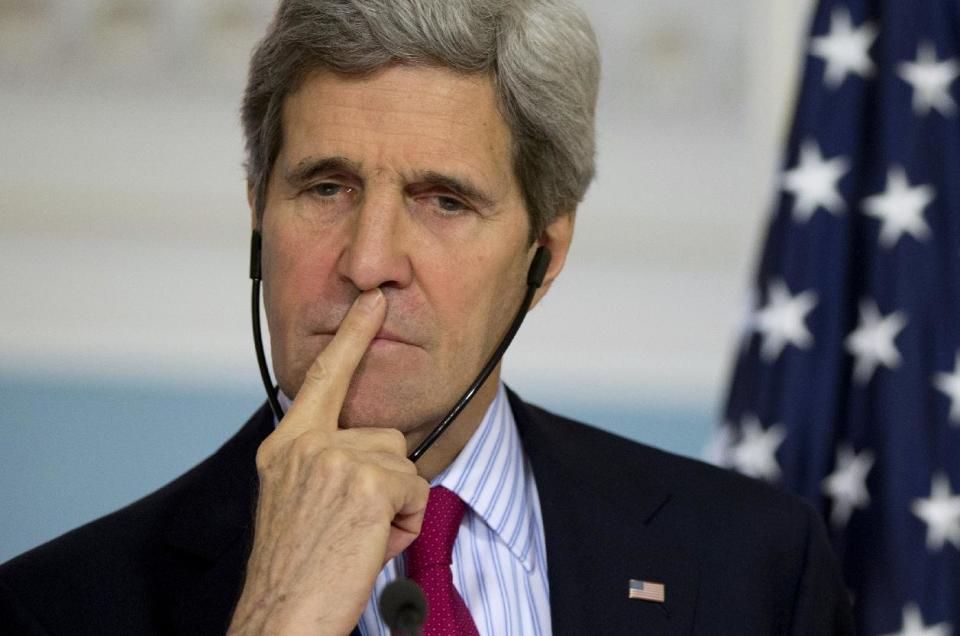Cold War-era suspicions soar over Ukraine
WASHINGTON (AP) — Cold War-tinged suspicions between Washington and Moscow are spiraling over the crisis in Ukraine despite the Obama administration's efforts to tamp them down.
Instead of lowering tensions, attempts by senior U.S. officials to calm the situation appear to be heightening the perception in Russia that developments in Ukraine have become an East-West duel for influence on the territory of the former Soviet Union. At the same time, reports of Russian military maneuvers in and around Ukraine and its strategic southern Crimean peninsula have fueled deep distrust of Russia in Washington and kindled fears of a repeat of Russia's 2008 conflict with Georgia, another western-leaning former Soviet republic.
On Friday, as pro-Russia gunmen patrolled Crimean streets in armored vehicles and took over airports there, and Ukraine's pro-Western interim authorities accused Moscow of invading their country, the White House and Secretary of State John Kerry delivered blunt warnings to Moscow against military moves in Crimea that could further inflame tensions.
Kerry and White House spokesman Jay Carney both said any Russian military intervention in Ukraine would be a "grave mistake" and that the United States was watching closely to see if Russian activity was "crossing a line." They did not, however, spell out any consequences for such an intervention.
Kerry said he called Russian Foreign Minister Sergey Lavrov for the second time in two days to press the Kremlin to keep its promise to respect Ukraine's sovereignty and territorial integrity.
Kerry told reporters that Lavrov had once again repeated Russian President Vladimir Putin's pledge to do just that while also pointing out that Russia has broad interests in Ukraine, including a major naval base in Crimea.
But Kerry, in comments that highlighted Washington's rising suspicion of Moscow, said the U.S. is watching to see if Russian activity in Crimea "might be crossing a line in any way." He added that the administration would be "very careful" in making judgments about that. Carney echoed Kerry's comments at the White House.
"While we were told that they are not engaging in any violation of the sovereignty and do not intend to, I nevertheless made it clear that that could be misinterpreted at this moment," Kerry said. "There are enough tensions that it is important for everybody to be extremely careful not to inflame the situation and not send the wrong messages."
Ukraine, meanwhile, accused Russia of a "military invasion and occupation," saying Russian troops have taken up positions around a coast guard base and two airports in Crimea.
Kerry reiterated the U.S. view that Russian military intervention in Ukraine following the ouster of the country's Russia-backed leader would run counter to Russia's self-professed opposition to such operations in other countries, such as Libya and Syria.
And Kerry noted that during his call with Lavrov, fugitive Ukrainian President Viktor Yanukovych was holding a news conference in southern Russia in which he said he was not asking Moscow for military assistance and called military action "unacceptable." In his appearance before reporters, however, Yanukovych, who still regards himself the president, also vowed to "keep fighting for the future of Ukraine" and blamed the U.S. and the West for encouraging the rebellion that forced him to flee last weekend.
Any Russian military incursion in Crimea would dramatically raise the stakes in Ukraine, which is at the center of what many see as a tug of war between East and West.
One of the catalysts for massive demonstrations that led to Yanukovych's ouster was his rejection of a partnership agreement with the European Union in favor of historical ties with Moscow. That EU agreement would have paved the way for Ukraine's greater integration with the West, including potential affiliation with NATO, something to which Russia strongly objects for former Warsaw Pact members.
Underscoring U.S. concerns are memories of the conflict in Georgia, where Russian troops remain in two disputed enclaves in violation of a 2008 cease-fire.
Amid the heightened tensions over Ukraine, the U.S. this week twice renewed its objections to the Russian military presence in Georgia's breakaway Abkhazia and South Ossetia regions.
Kerry and other senior U.S. officials have tried without success to dispel widespread sentiment in Russia that the United States and Europe are trying to pry Ukraine out from under Russian influence. They have insisted repeatedly that Ukraine is not a "zero-sum game" in which one side — Russia or the West — wins and the other loses.


